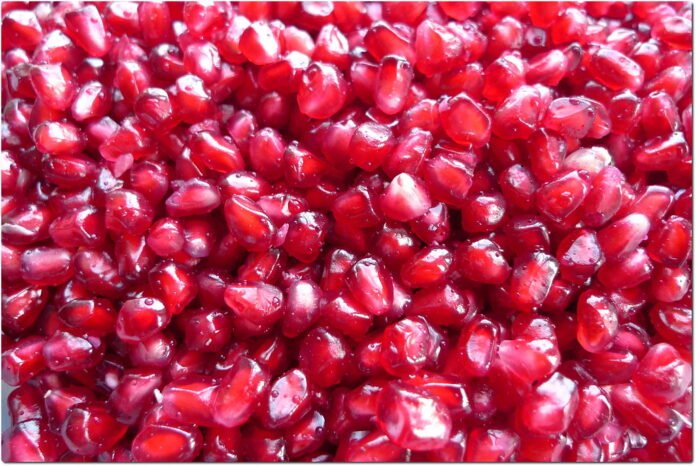A recent randomized controlled trial published in the journal Nutrients has found that pomegranate extract (PE) supplementation may offer significant health benefits to adults over the age of 55, particularly in reducing systolic blood pressure and key markers of inflammation. This research contributes to the growing body of evidence supporting the use of non-pharmaceutical strategies to promote healthy ageing.
Pomegranate’s Nutritional and Environmental Profile
Pomegranate (Punica granatum L.), known for its rich polyphenol content, particularly punicalagin, has long been valued for its antioxidant and anti-inflammatory properties. With higher antioxidant capacity than many other fruits, including green tea, pomegranate is also a sustainable crop, thriving in arid conditions with low water and energy input.
Study Design and Participant Profile
The study involved 86 participants, primarily White British women between the ages of 55 and 70, most of whom were of normal weight. Researchers found that although these individuals appeared generally healthy, many exhibited hidden risk factors. For instance, 90% had elevated total cholesterol, and 80% had high LDL cholesterol. Mildly elevated systolic blood pressure (SBP) was also common, with 80% of participants falling between 120 and 129 mm Hg.
Baseline Inflammatory and Metabolic Risk Factors
Inflammatory markers were assessed at baseline, showing varied results. Around one-third of participants had low-normal interleukin-6 (IL-6) levels, while over half had tumor necrosis factor-alpha (TNF-α) within normal ranges. Most participants had normal C-reactive protein (CRP) levels.
Key Results: Reduced Inflammation and Improved Blood Pressure
Following regular consumption of pomegranate extract, the study observed notable reductions in inflammatory markers among the PE group, including a significant drop in IL-6 by 5.47 pg/mL and a decrease in IL1-β levels. Though not statistically significant, CRP and TNF-α levels also trended downward. Other markers, such as IL1-α and plasminogen activator inhibitor-1 (PAI-1), remained unchanged.
READ MORE: The Rise of Antibiotic Resistance and the Fight Against Superbugs
Participants taking PE also experienced a mean reduction in systolic blood pressure of 5.2 mm Hg. Diastolic pressure declined by approximately 3 mm Hg, though this change did not reach statistical significance. These blood pressure improvements are clinically relevant, as a 5 mm Hg decrease in SBP is typically associated with a 10% reduction in the risk of major cardiovascular events.
Mechanisms Behind the Health Benefits
Researchers suggest that the blood pressure-lowering effects of PE may be attributed to improved vasodilation, driven by the reduction of oxidative stress and enhanced endothelial nitric oxide synthase (eNOS) activity linked to ellagitannins in pomegranate.
Limitations and Observations
Despite these positive outcomes, other cardiometabolic factors such as BMI, triglycerides, HDL, and fasting glucose levels did not show significant changes. The researchers note that the relatively small proportion of overweight participants may have limited the ability to detect variations in these measures.
Supplement Tolerance and Lifestyle Factors
The supplement was well tolerated among participants, with high adherence and no changes in dietary habits, macronutrient intake, or physical activity during the study period.
Call for Further Research
While the results are promising, the researchers emphasize the need for further studies. Larger, more diverse trials with extended follow-up periods will be crucial in confirming the long-term benefits and broader applicability of PE supplementation for older adults.
Conclusion: Natural Support for Healthy Ageing
This study underscores the importance of addressing cardiometabolic and inflammatory risks even in apparently healthy older adults. The findings suggest that pomegranate extract could be an effective, natural tool to support cardiovascular health and mitigate age-related inflammation.
“The consumption of pomegranate extract may offer a valuable, non-pharmacological strategy to promote healthy ageing,” the authors conclude.
